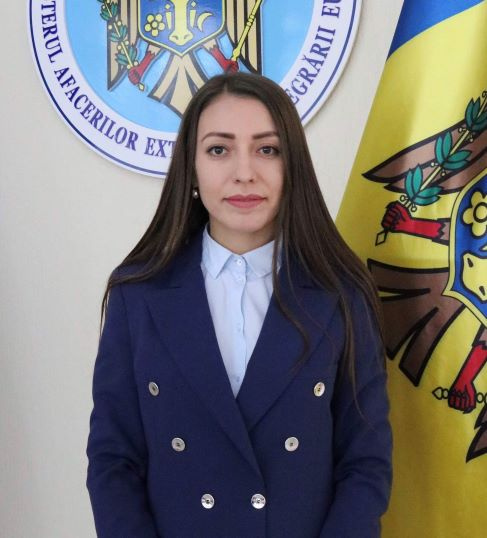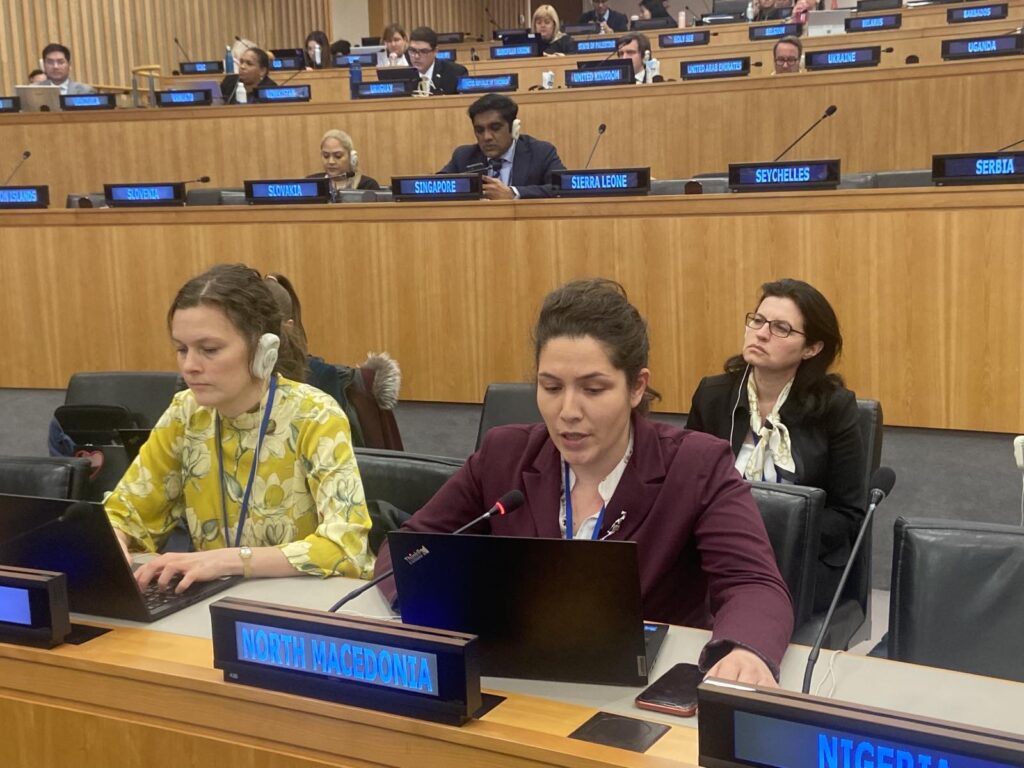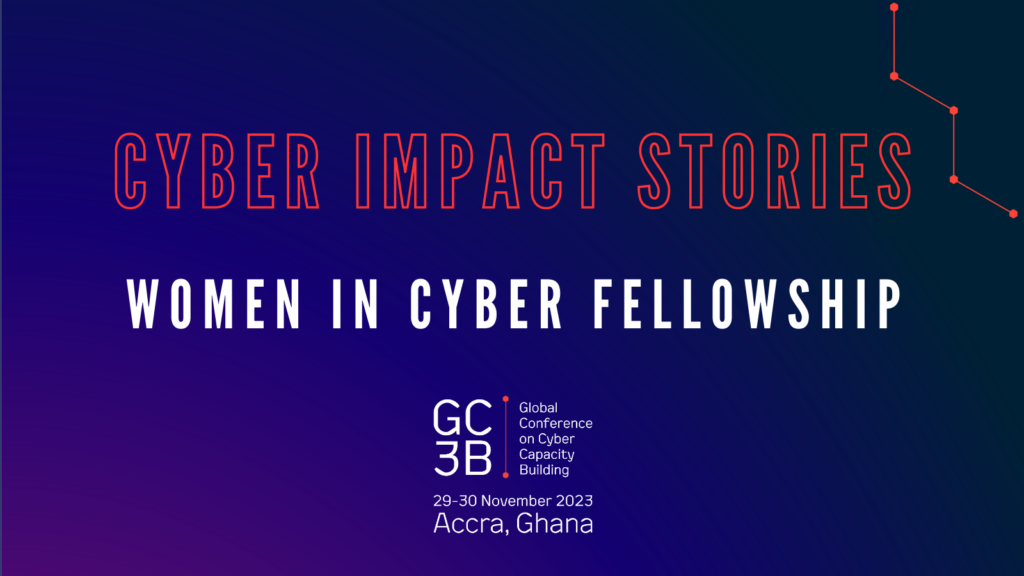Challenge
Women are differently and uniquely affected by conflict and threats to international peace and security, as recognized by the Women, Peace and Security agenda. Women also represent approximately 25% of the cyber security workforce, according to various reports.
UNIDIR’s report into gender balance in arms control, non-proliferation and disarmament diplomacy ‘Still Behind the Curve’, found that the UN First Committee (under which the Open-Ended Working Group (OEWG) is convened) has the lowest proportion of female diplomats of any of the UNGA’s Main Committees. This leads to a need to mainstream gender equality in cyberspace.
Cyber initiative
The Women in Cyber Fellowship (WiC) addresses the gender imbalance present in UN discussions on security and cyberspace. This impactful initiative aims to bridge the gender gap by empowering more women to participate in UN discussions concerning cyberspace, ensuring equal and effective representation of women diplomats in United Nations cyber negotiations. The program seeks to develop cyber governance capacities, provide access to workshops, directly support fellows to participate in UN processes and contribute to the development of an international peer-to-peer community of women policy makers engaged in UN processes and cyber diplomacy.
The WiC program is a joint initiative facilitated by the Global Forum on Cyber Expertise and organized and sponsored by the governments of the United States, Australia, Netherlands, Canada, New Zealand and the United Kingdom that aims to tackle this issue. Aimed at early to mid-career female diplomats, there are currently over +40 fellows representing countries from ASEAN, Pacific, South America and Commonwealth countries.
Impact
The fellowship provides opportunities for knowledge and skills development related to cyber diplomacy, with Fellows participating in UN substantive sessions with their national delegation. The training elements of the fellowship therefore have a particular focus on international security and cybercrime, in addition to exploring the intersections of gendered issues of security with cyber policy. This improves the establishment of an international cyber stability framework promoting responsible behavior in cyberspace, stronger cybercrime cooperation, prosecution and prevention, advocacy of human rights and democracy online as well as the development of cyber security capabilities for a strong and resilient national cyber security posture.
- Participation of fellows in UN sessions
- The organizing countries provide support to fellows in attending negotiations in the UN cyber processes (Open-ended Working Group and Ad-Hoc Committee). The GFCE Secretariat provides administrative support enabling fellows to travel to these meetings. The program of meetings follows the schedules set out by the respective UN Process. For the Ad-Hoc Committee, see further information here. For the Open-ended Working Group, see further information here.
- Training, workshops and roundtable sessions
- The organizing countries arrange trainings and workshops corollary to the UN substantive sessions. These events are a core feature of the fellowship, helping fellows to prepare for upcoming negotiations, develop knowledge on the substantive content of discussions, as well as developing skills, for example in cyber diplomacy.
- In July 2022, during the OEWG 3rd Substantive Session in New York, UNITAR hosted the third annual Women in Cyber training programme attended by a group of 24 fellows. The workshops were focused on negotiation, drafting and diplomacy skills.
- Networking
- The program supports fellows in actively participating in ongoing UN processes and brings those together with alumni in networking events, generating external momentum around gender issues in international security.
Who are the fellows?
Hear from two of the fellow’s experience, Corina Moroi, from the Republic of Moldova and Sandra Anastasovska from North Macedonia below!

Corina Moroi, WiC Fellow from the Republic of Moldova
My experience at the Women in Cyber Fellowship
“My participation in the Women in International Security and Cyberspace (WiC) Fellowship is by far one of the best professional experiences I have had so far. Within this fellowship I had the privilege to join my country’s delegation at the fourth (March 2023) and fifth (July 2023) substantive sessions of the Open-Ended Working Group on security of and in the use of information and communications technologies 2021-2025, held at the United Nations Headquarters in New York.
I cannot but underline the astonishment I experienced in March when I saw a significant number of women delivering consistent statements on behalf of their countries in a field where women are usually under-represented. I was even more amazed when I realized that approximately 50 women of those present in the conference room at the UNHQ was the result of their participation in the fellowship, which is a joint effort of the governments of the United States, Australia, Canada, the Netherlands, New Zealand and the United Kingdom. It was equally encouraging to listen to the chair of the OEWG, heads of delegations and important stakeholders about their high appreciation for the contribution of Women in Cyber at the OEWG discussions.
WiC fellowship offered me the opportunity to meet and discuss with experts in the field of cyber security from countries best prepared against cyberattacks and those that have enhanced their resilience as a result of attacks in this field both from our neighbourhood as well as from the most remote regions in the world. I learned from primary sources about the existing and potential threats in the field of information security, about the cyber-attacks that people have suffered from and their visions towards confidence-building measures and capacity-building.
My lesson learned by virtue of the WiC fellowship, is that nations, in their efforts to build trust, begin to understand to an increasing extent that we must not only guarantee equal access to discussions, but also make it sustainable over time. This is why women’s perspective must be integrated into national and international discussions, due to the global added value of equal participation, the diversity and depth of contributions derived from a gender approach.
Not only was my participation in the OEWG sessions occasioned by the WiC fellowship, but also my attendance of a series of training courses organized prior to the sessions, which played a key role in my broad understanding of the cyber security promotion process at the UN level, particularly pertaining to how international law applies to the use of information and communications technologies by states. I cannot skip mentioning other training courses and workshops which helped me to improve my diplomatic abilities with skills that proved to be effective in the context of negotiations at the UN level.
I certainly know that building trust amongst countries, which is essential for reducing the risk of misinterpretation and unintended escalation of cyber incidents, requires listening to all sides, as well as integrating all perspectives, opinions, and visions in a transparent and inclusive manner. For this reason, I am gratified to underline the importance of the Women in Cyber programme, supported by the Secretariat of the Global Forum on Cyber Expertise, and the role of the sponsoring countries in advancing gender parity, thus enabling a greater participation by women in UN cyber negotiations, their robust contribution and unique perspectives to the debates held within the OEWG process”.
– Corina Moroi, WiC Fellow from the Republic of Moldova

– Sandra Anastasovska, WiC Fellow from North Macedonia
“The Women in Cyber Fellowship has been a transformative experience for me. Through this program, I not only gained knowledge in cyber diplomacy but also had the privilege of building meaningful connections with representatives from around the world. It’s been a journey of personal and professional growth, showing me the true essence of international negotiations. This initiative holds a special place in my heart as it not only empowers women but also contributes significantly to the global cyber landscape”.
